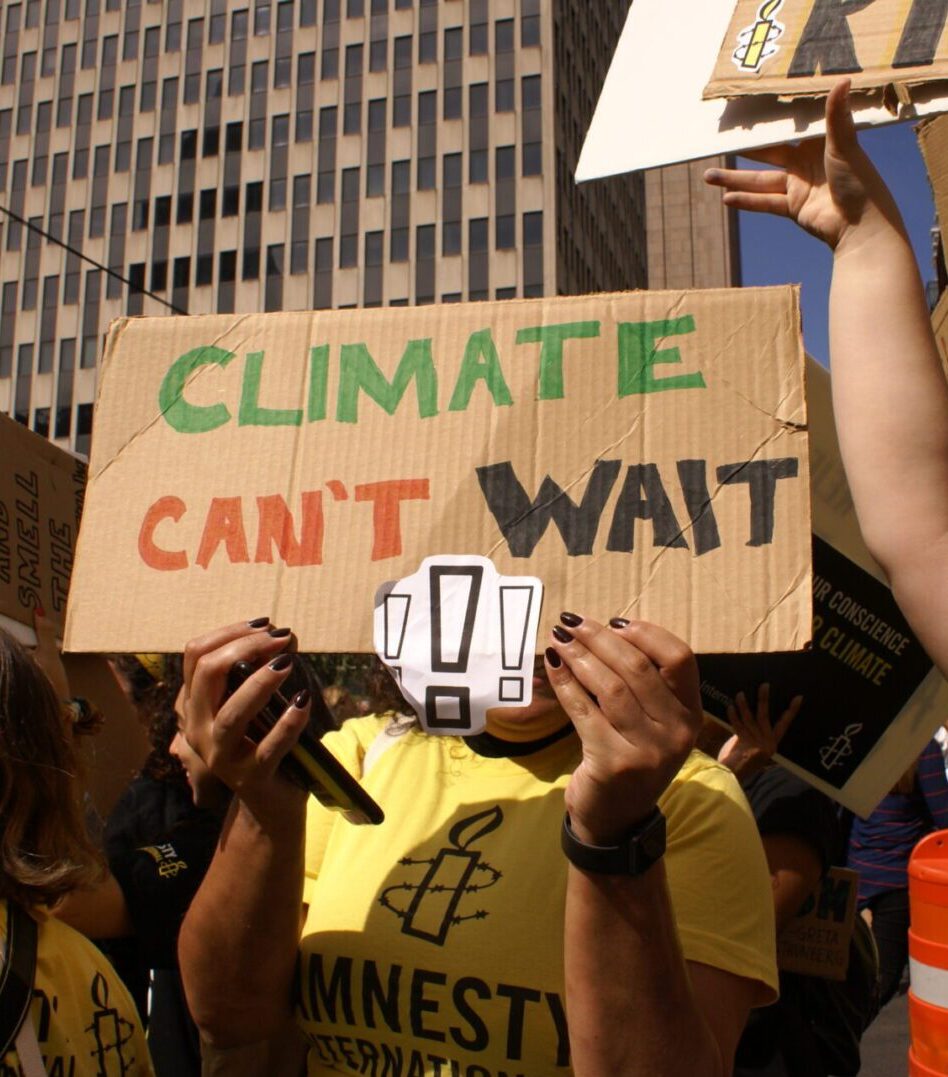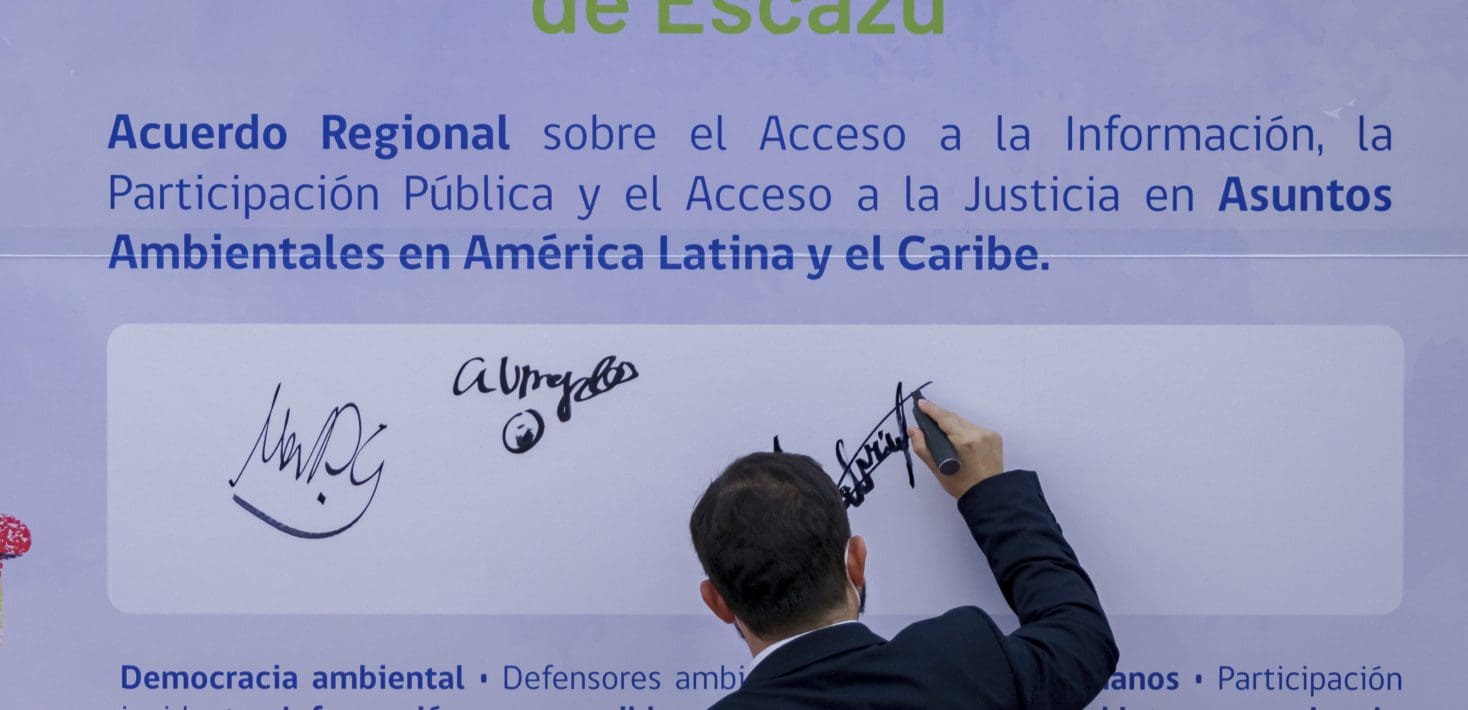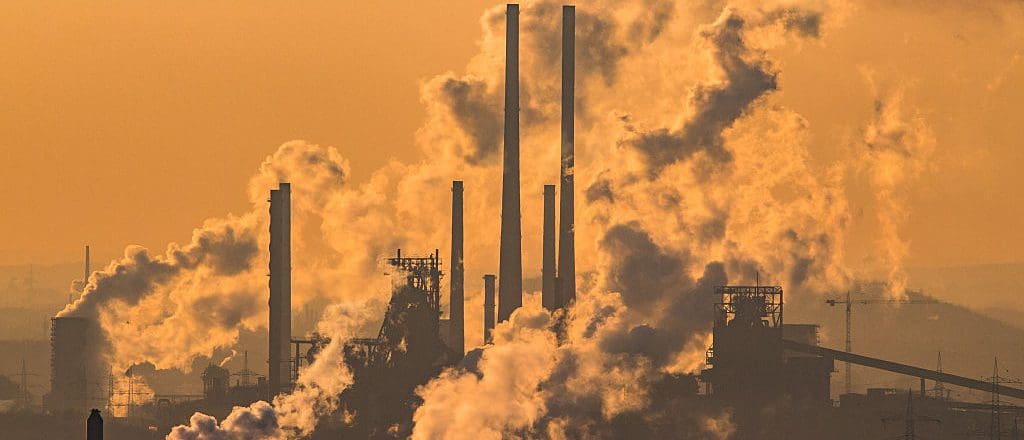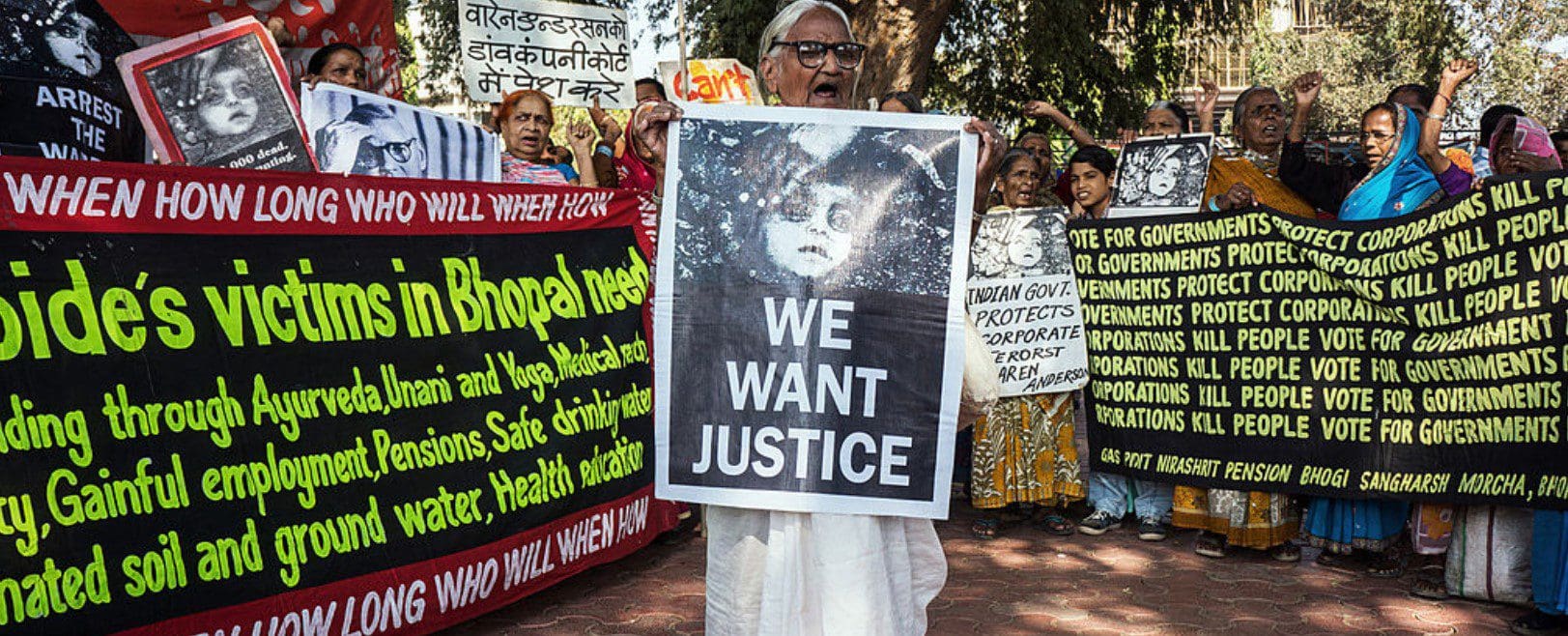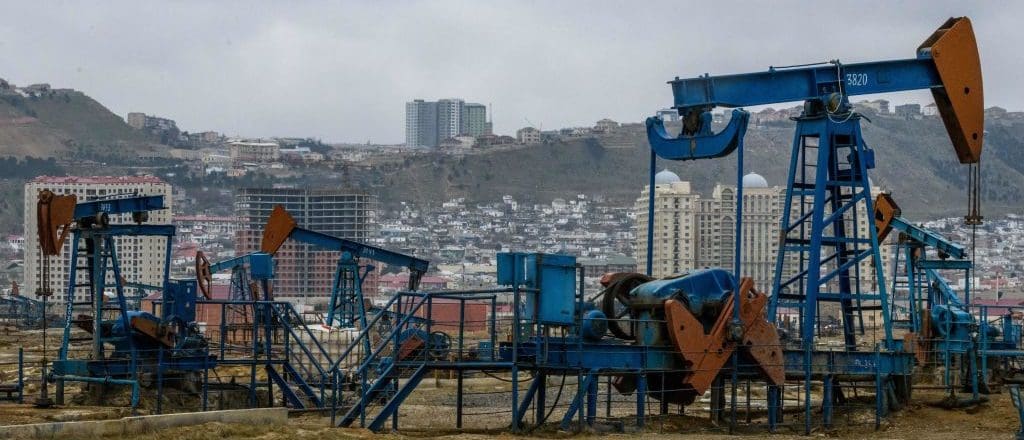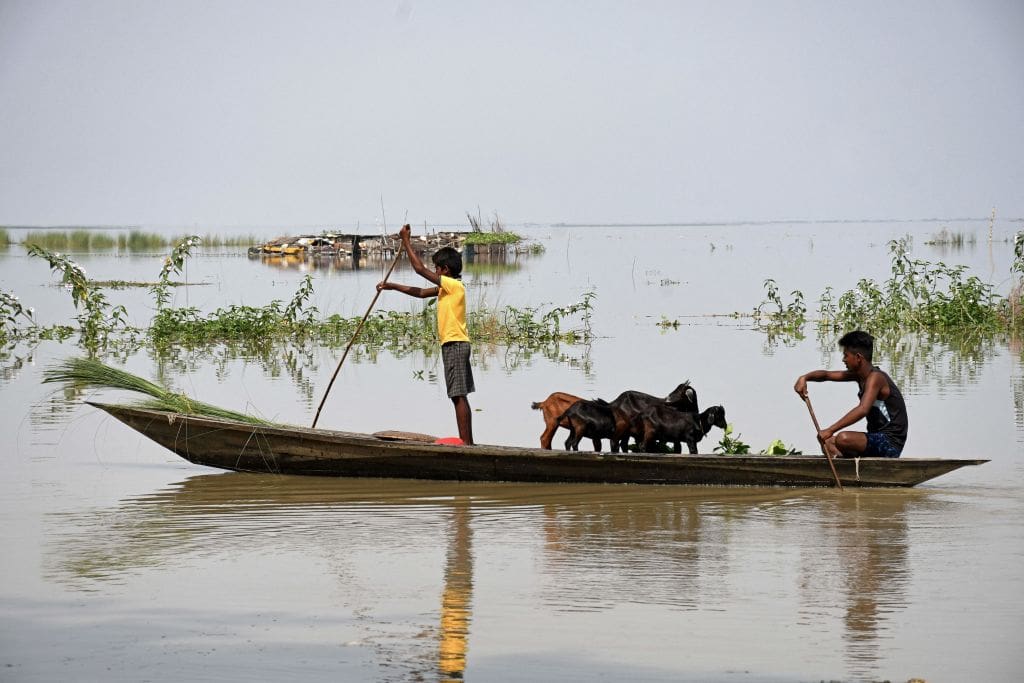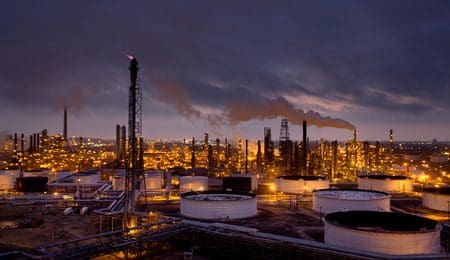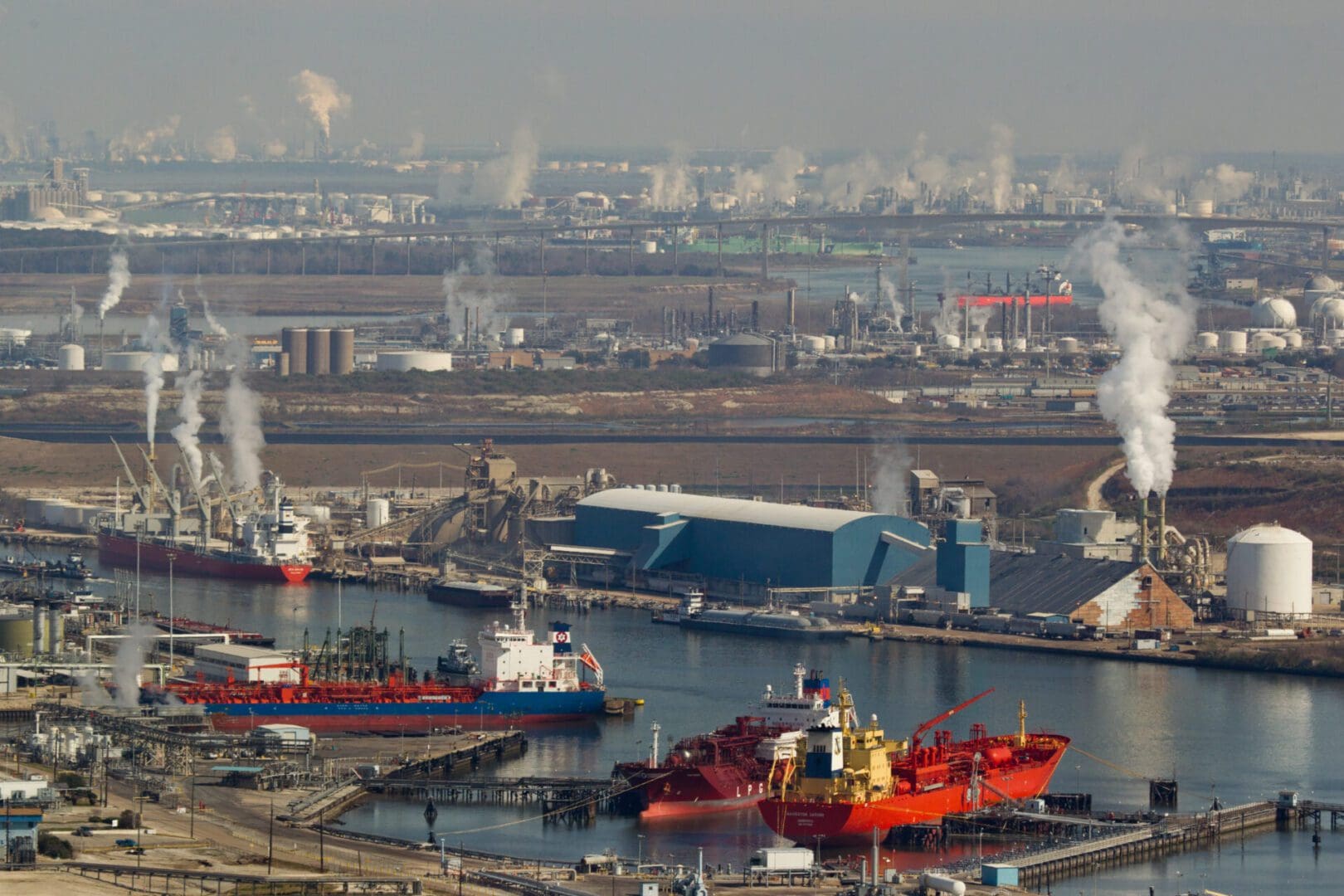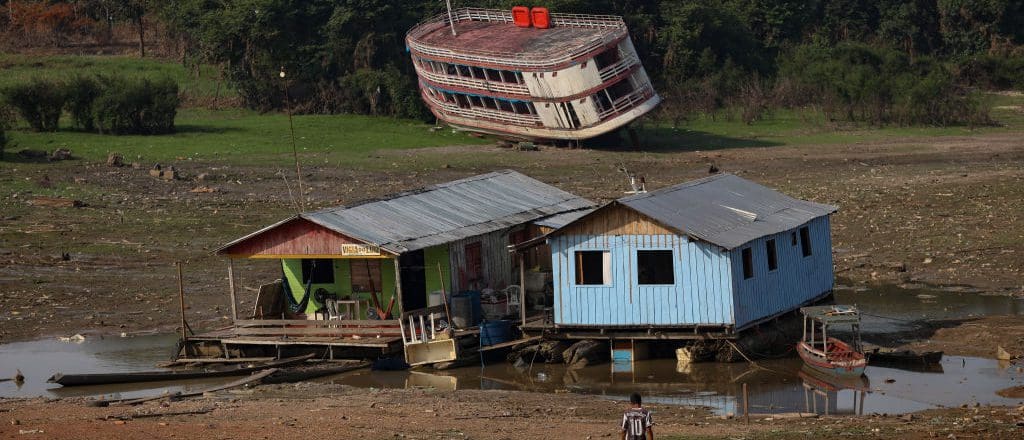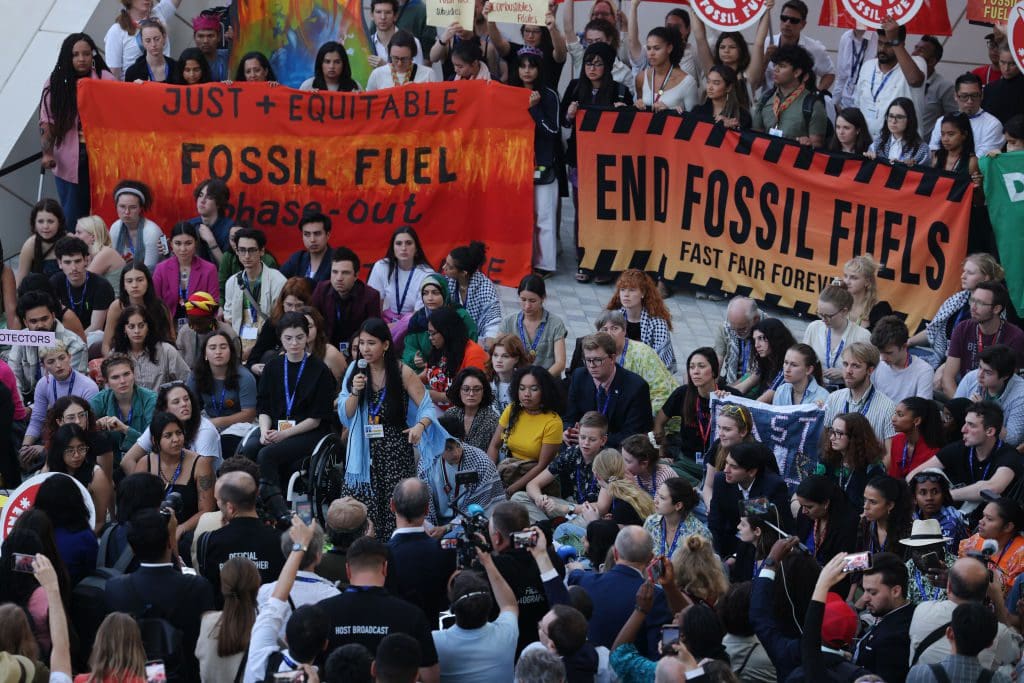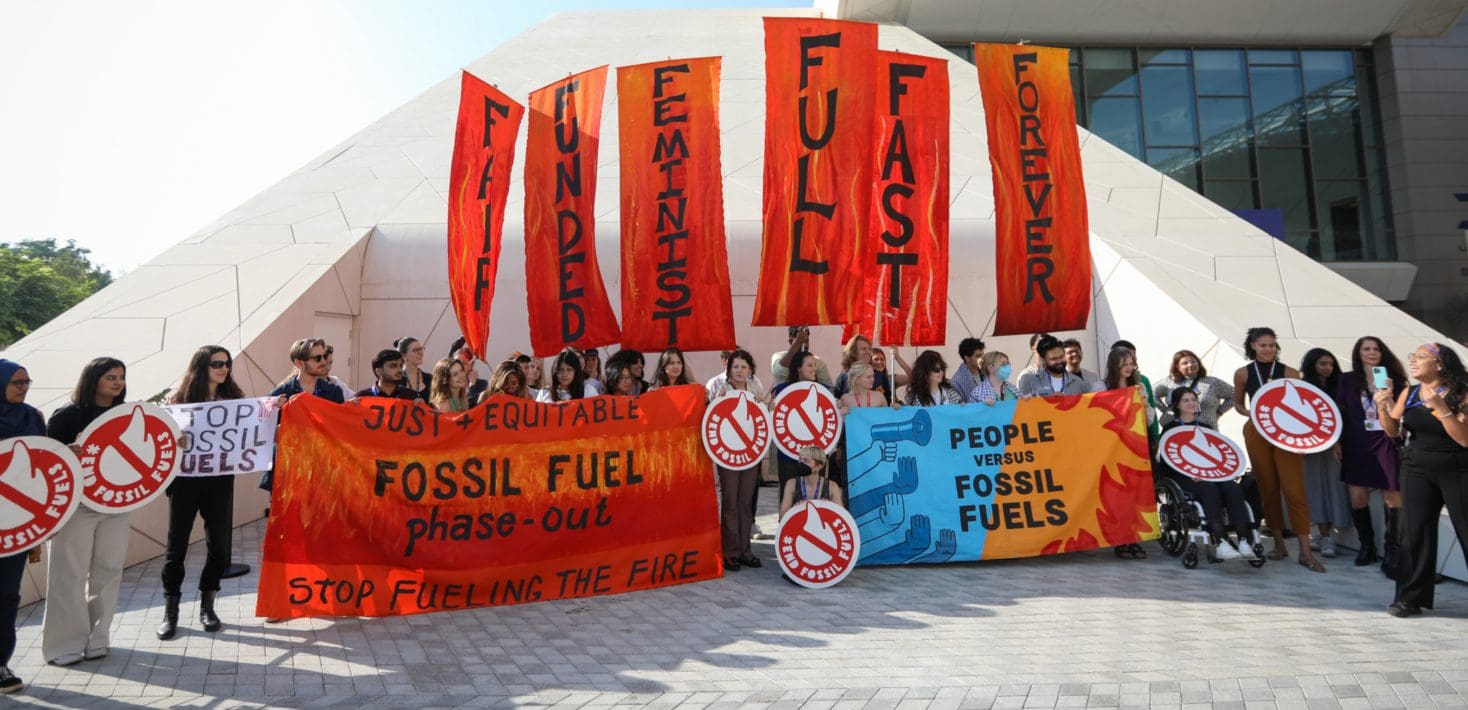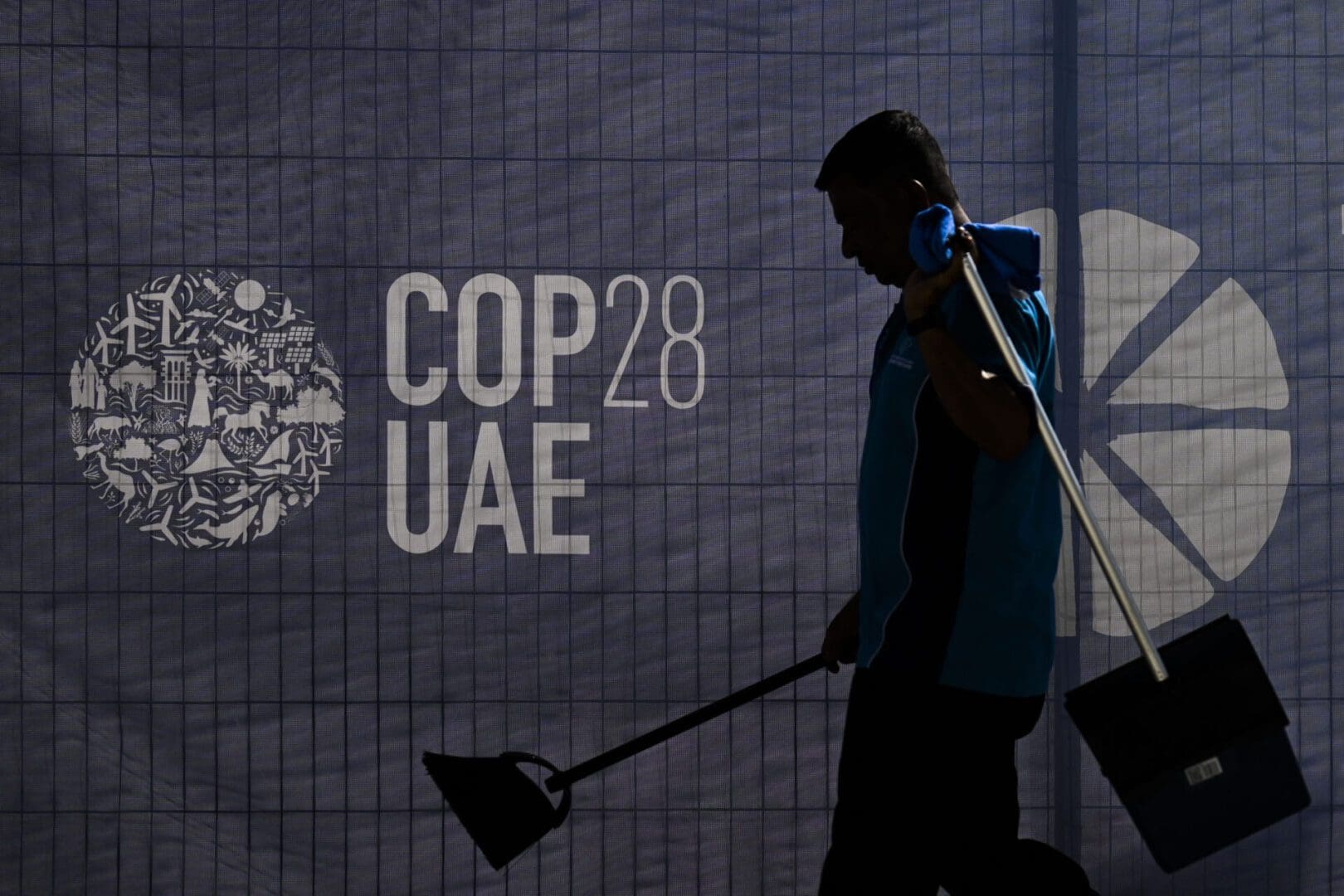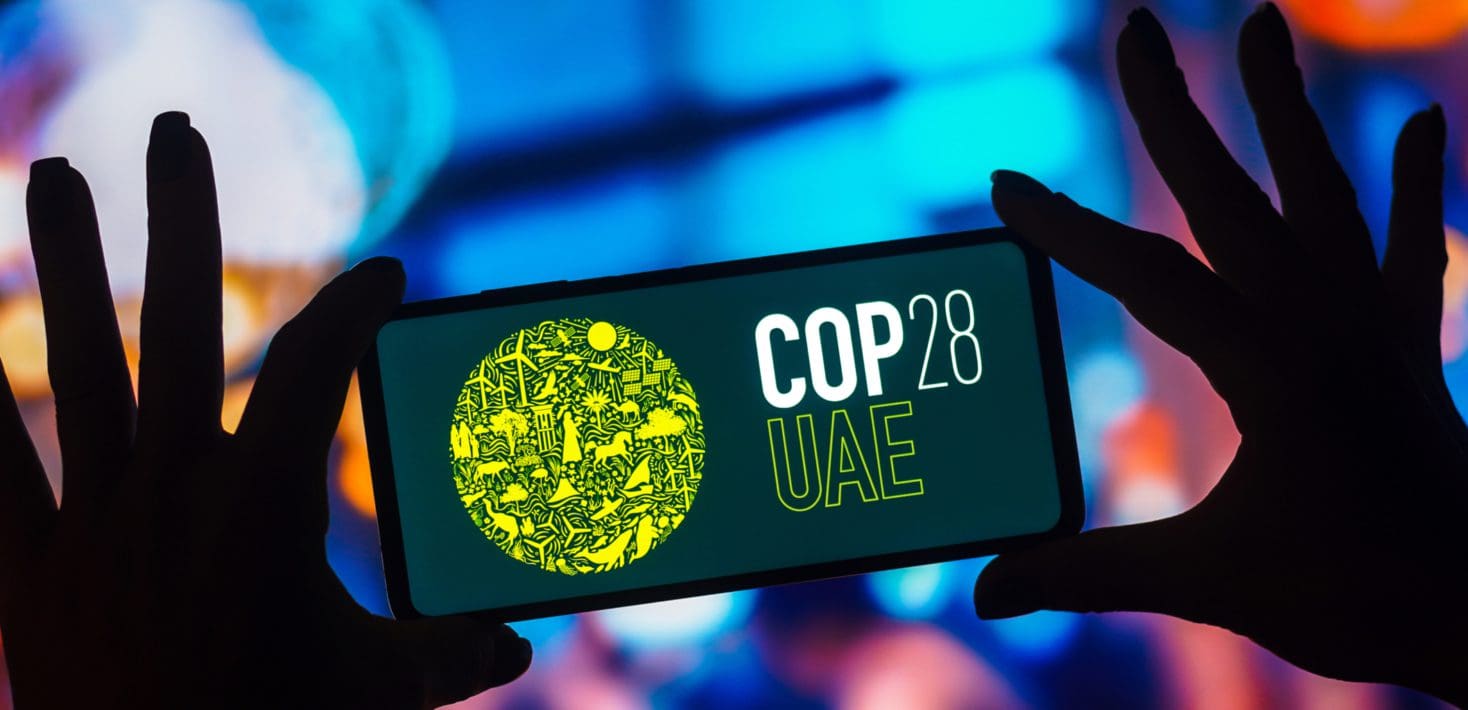What is the problem?
The planet’s climate has constantly changed throughout the Earth’s history with significant fluctuations of global average temperatures. However, the current period of warming is occurring more rapidly than any past events within human history.
The vast majority of climate scientists conclude that humanity has caused most of the last century’s warming by releasing heat-trapping gasses – known as greenhouse gasses – to power our modern lives. We are releasing these gasses through the burning of fossil fuels, industrial agriculture and land-use change, transportation and other activities that drive the climate crisis. Greenhouse gasses are present in the atmosphere today at the highest levels they have ever been over the last 800,000 years.
The climate crisis involves not only a rise in the global average temperature, but also a range of other impacts at a rate that is too fast for living things to adapt to.
Research has shown that the climate crisis has led to the increased intensity and frequency of certain weather events, such as extreme heat, wildfires and extreme rainfall from tropical storms. The climate crisis also alters precipitation patterns and leads to glacial melting, sea-level rise, salt water intrusion and ocean acidification, and contributes to shifting wildlife populations and habitats and to biodiversity loss.
Why is it an issue?
The climate emergency is a human rights crisis of unprecedented proportions. The climate crisis threatens civil, political, economic, social and cultural rights of present and future generations and, ultimately, the future of humanity.
When climate crisis-related impacts hit a country or a community, the effects can seriously endanger a range of human freedoms and in many cases even put at risk the cultural survival of entire peoples.
At the current level of global warming above pre-industrial levels, we are already witnessing devastating impacts, such as heatwaves and unprecedented wildfires, back-to-back tropical storms of high intensity and severe drought.
These events severely affect millions of people, including our rights to life, water, food, housing, health, sanitation, adequate standard of living, work, development, healthy environment, culture, self-determination as well as the right to be free from discrimination and cruel, inhuman and degrading treatment.
Who is most impacted?
The climate crisis is a manifestation of deep-rooted injustices. Although the climate crisis is a global problem affecting everybody, it disproportionately affects individuals and groups who are already subjected to multiple and intersecting forms of discrimination or who are marginalized as a result of structural inequalities, ingrained practices or official policies that unfairly distribute resources, power and privilege.
These are some of the ways the climate crisis can and is exacerbating inequalities:
Between higher income and lower income countries: At a national level, those in low-lying, small island states and lower income countries will be and already are among those worst affected. People in the Marshall Islands already regularly experience the devastating flooding and storms that destroy their homes and livelihoods. The 2018 heatwave in the northern hemisphere made headlines across Europe and North America, but some of the worst effects were also felt in countries including Pakistan, where more than 60 people died – mostly laborers already working in intense heat – as temperatures soared above 44°C.
Between different ethnicities and classes: The effects of the climate crisis and fossil fuel-related pollution also run along ethnicity and class lines. In North America, it is largely poorer communities of color who are forced to breathe toxic air because their neighborhoods are more likely to be situated next to power plants and refineries. They experience markedly higher rates of respiratory illnesses and cancers, and Black Americans are three times more likely to die of airborne pollution than the overall US population.
Between genders: Women and girls are disproportionately affected by the climate crisis, reflecting the fact that they are more likely in many countries to be marginalized and disadvantaged. This means that they are more likely to bear the impacts of climate-related events as they are less able to protect themselves against it and will find it harder to recover.
Between generations: Future generations will experience the worsening effects unless action is taken now by governments. However, children and young people are already suffering due to their specific metabolism, physiology and developmental needs. This means, for example, that the forced displacement experienced by communities impacting a whole range of rights – from water, sanitation and food to adequate housing, health, education and development – is likely to be particularly harmful to children.
Between communities: Indigenous peoples are among the communities most impacted by the climate crisis. They often live in marginal lands and fragile ecosystems which are particularly sensitive to alterations in the physical environment. They maintain a close connection with nature and their traditional lands on which their livelihoods and cultural identity depend.
What is the solution?
Under international human rights law, governments have legal and enforceable obligations to tackle the climate crisis, including by rapidly phasing out fossil fuels through a just transition to green energy that respects, protects and fulfills the human rights of all people, especially those most impacted.
Human rights principles and standards also provide significant guidance to establish the responsibility of businesses in relation to the climate crisis. Human rights are therefore essential to hold both governments and corporations accountable for the human rights harms related to the climate crisis for which they are responsible.
Campaigning and advocating on the basis of human rights – as opposed to solely environmental protection – can motivate some decision-makers to adopt decisions in favor of human rights-consistent climate action, either due to the intrinsic argument made, or by showing that climate action has broad support in society.
Amnesty is calling for governments to, among other things:
- Do everything they can to help stop the global temperature rising by more than 1.5°C.
- Reduce their greenhouse gas emissions to zero by 2050 at the latest. Richer countries should do this faster. By 2030, global emissions must be half as much as they were in 2010.
- Stop using fossil fuels (coal, oil and gas) as quickly as possible.
- Make sure that climate action is done in a way that does not violate anyone’s human rights, and reduces rather than increases inequality
- Make sure everyone, in particular those most affected by the climate crisis or the transition to a fossil-free economy, is properly informed about what is happening and is able to participate in decisions about their futures.
- Work together to fairly share the burden of the climate crisis – richer countries must help others.
Who is responsible for stopping the climate crisis?
Governments have the obligation to mitigate harmful effects of the climate crisis
While the governments of wealthy countries need to lead the way, both internally and through international cooperation, the governments of all countries must take all reasonable steps to reduce emissions to the full extent of their abilities.
Governments must also take all necessary steps to help everyone within their jurisdiction to adapt to the foreseeable and unavoidable effects of the climate crisis, thus minimizing the impact of the climate crisis on their human rights. This is true irrespective of whether the nation-state is responsible for those effects, because nation-states have an obligation to protect people from harms caused by third parties.
In their efforts to address the climate crisis, governments must not resort to measures that directly or indirectly violate human rights. For example, conservation areas or renewable energy projects must not be created on the lands of Indigenous peoples without consulting them and getting their consent. In all measures, governments should respect the right to information and participation for all affected people, as well as their right to access effective remedies for human rights abuses.
However, the current pledges made by governments to mitigate the climate crisis are completely inadequate, as they would lead to a catastrophic 3°C increase in average global temperatures over pre-industrial levels by 2100. People in countries including the U.S., France, the Netherlands and Switzerland are taking their governments to court for their failure to establish sufficient climate mitigation targets and measures.
Corporations need to be held accountable for the climate crisis
Companies must assess the potential effects of their activities on human rights and put in place measures to prevent negative impacts. They must make such findings and any prevention measures public. Companies must also take measures to remedy human rights abuses they cause or to which they contribute, either by themselves or in cooperation with other actors. Such responsibilities extend to human rights harms resulting from the climate crisis.
Corporations, and particularly fossil fuel companies, must also immediately put measures in place to minimize greenhouse emissions – including by shifting their portfolio towards renewable energy – and make relevant information about their emissions and mitigation efforts public. These efforts must extend to all the major subsidiaries, affiliates and entities in their supply chain.
Fossil fuel companies have been historically among the most responsible for the climate crisis – and this continues today. Research shows that just 100 fossil fuel-producing companies are responsible for 71% of global greenhouse gas emissions since 1988.
There is growing evidence that major fossil fuel companies have known for decades about the harmful effects of burning fossil fuels and have attempted to suppress that information and block efforts to tackle the climate crisis.
Private and public financial institutions, including banks used by the public, play a key role in driving the climate crisis, especially when they provide loans and other financial services to fossil fuel companies and businesses linked to deforestation without any climate-related conditions. We are calling on financial institutions, including banks, to stop funding fossil fuels and deforestation. They should immediately stop financing and investing in new projects, activities and industries that drive fossil fuel expansion and deforestation. Regarding their current investments and funding, we are calling on them to phase these out.

